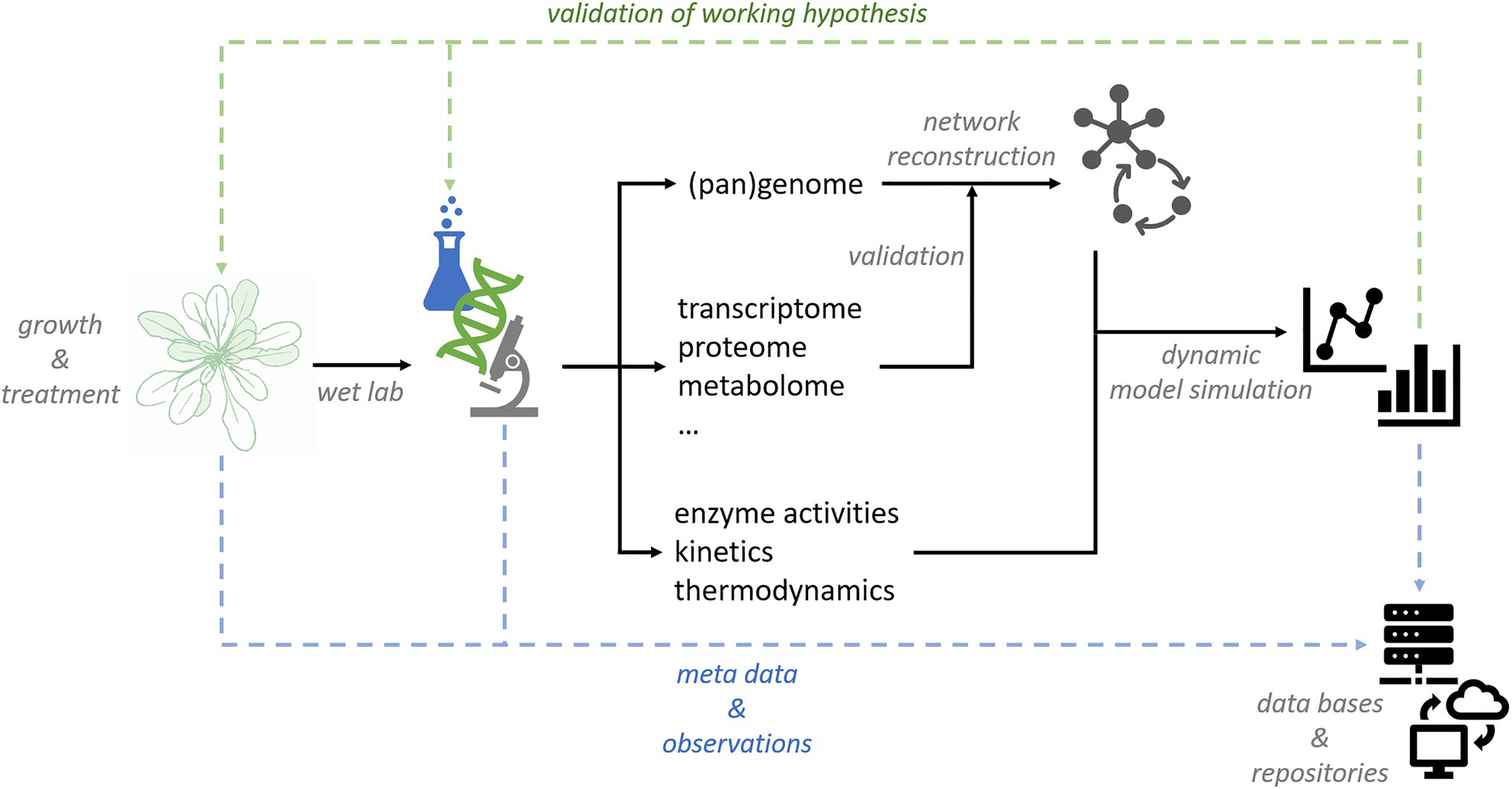Difference between revisions of "Template:Article of the week"
Shawndouglas (talk | contribs) (Updated article of the week text) |
Shawndouglas (talk | contribs) (Added last week's article of the week) |
||
| Line 1: | Line 1: | ||
<div style="float: left; margin: 0.5em 0.9em 0.4em 0em;">[[File: | <div style="float: left; margin: 0.5em 0.9em 0.4em 0em;">[[File:Fig3 Krantz FrontPlantSci2021 12.jpg|240px]]</div> | ||
'''"[[Journal: | '''"[[Journal:Data management and modeling in plant biology|Data management and modeling in plant biology]]"''' | ||
The study of plant-environment interactions is a multidisciplinary research field. With the emergence of quantitative large-scale and high-throughput techniques, the amount and dimensionality of experimental data have strongly increased. Appropriate strategies for data storage, [[Information management|management]], and [[Data analysis|evaluation]] are needed to make efficient use of experimental findings. Computational approaches to [[data mining]] are essential for deriving statistical trends and signatures contained in data matrices. Although, current biology is challenged by high data dimensionality in general, this is particularly true for plant biology. As sessile organisms, plants have to cope with environmental fluctuations ... ('''[[Journal:Data management and modeling in plant biology|Full article...]]''')<br /> | |||
<br /> | <br /> | ||
''Recently featured'': | ''Recently featured'': | ||
{{flowlist | | {{flowlist | | ||
* [[Journal:Sample identifiers and metadata to support data management and reuse in multidisciplinary ecosystem sciences|Sample identifiers and metadata to support data management and reuse in multidisciplinary ecosystem sciences]] | |||
* [[Journal:Best practice recommendations for the implementation of a digital pathology workflow in the anatomic pathology laboratory by the European Society of Digital and Integrative Pathology (ESDIP)|Best practice recommendations for the implementation of a digital pathology workflow in the anatomic pathology laboratory by the European Society of Digital and Integrative Pathology (ESDIP)]] | * [[Journal:Best practice recommendations for the implementation of a digital pathology workflow in the anatomic pathology laboratory by the European Society of Digital and Integrative Pathology (ESDIP)|Best practice recommendations for the implementation of a digital pathology workflow in the anatomic pathology laboratory by the European Society of Digital and Integrative Pathology (ESDIP)]] | ||
* [[LII:Directions in Laboratory Systems: One Person's Perspective|Directions in Laboratory Systems: One Person's Perspective]] | * [[LII:Directions in Laboratory Systems: One Person's Perspective|Directions in Laboratory Systems: One Person's Perspective]] | ||
}} | }} | ||
Revision as of 13:53, 8 August 2022
"Data management and modeling in plant biology"
The study of plant-environment interactions is a multidisciplinary research field. With the emergence of quantitative large-scale and high-throughput techniques, the amount and dimensionality of experimental data have strongly increased. Appropriate strategies for data storage, management, and evaluation are needed to make efficient use of experimental findings. Computational approaches to data mining are essential for deriving statistical trends and signatures contained in data matrices. Although, current biology is challenged by high data dimensionality in general, this is particularly true for plant biology. As sessile organisms, plants have to cope with environmental fluctuations ... (Full article...)
Recently featured:
- Sample identifiers and metadata to support data management and reuse in multidisciplinary ecosystem sciences
- Best practice recommendations for the implementation of a digital pathology workflow in the anatomic pathology laboratory by the European Society of Digital and Integrative Pathology (ESDIP)
- Directions in Laboratory Systems: One Person's Perspective










